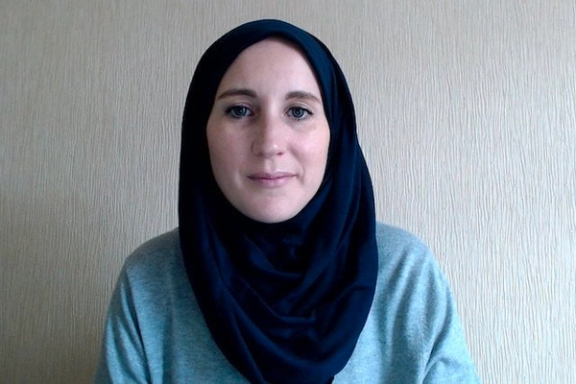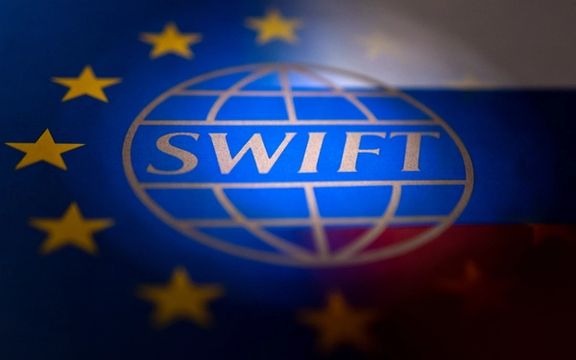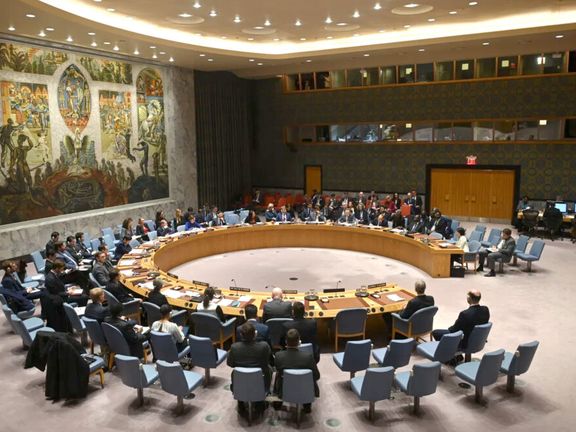Khamenei’s Website Denies Infiltration By French-Jewish Journalist

Iranian Supreme Leader Ali Khamenei's website has denied any relations with an “Israeli” journalist who allegedly “infiltrated” Khamenei’s official website.

Iranian Supreme Leader Ali Khamenei's website has denied any relations with an “Israeli” journalist who allegedly “infiltrated” Khamenei’s official website.
Fars news agency, affiliated with Iran’s Revolutionary Guard, published a statement on Sunday to reject reports about Catherine Perez Shakdam contributing to the English version of Khamenei’s website.
The statement added that Khamenei.ir doesn’t have any columnist and Shakdam has no direct connection with the website.
However, it confirmed that Shakdam sent articles and opinion pieces on issues related to Islam and the Islamic Revolution to the website from about 2015 to 2017 that were published on the site.
The website had no communication with the writer since then and removed its articles, the statement said.
The articles Shakdam wrote for Khamenei's website had been removed but many of them can be accessed via internet archive websites.
A scandal broke in major state-affiliated news outlet after supporters of former president Mahmoud Ahmadinejad claimed that she had been an Israeli “infiltrator”.
Over a period of several years, Iranian state-run media such as the English-language Press TV and the national broadcaster (IRIB) interviewed Shakdam, introduced as "political analyst and author based in London," while the Tasnim and Mehr news agencies published her articles.
Shakdam is a French-born Jew, a UK resident, and was a convert to Shiism. She boasted that her holding a French passport and former marriage to a Yemeni Muslim gave her "a free pass to many Islamic countries."

A former Iranian minister has warned parliament against plans to restrict Internet access, pointing out Elon Musk’s Starlink satellite access offered to Ukrainians.
Addressing the hardliner lawmakers who are pushing for a bill to limit the internet in Iran, former communication minister Mohammad-Javad Azari-Jahromi said on Sunday that "The consequences of wrong policies are heavy. Wrong governance destroys the instruments of governance and regulation forever”.
He made the remarks in reaction to the activation of satellite internet constellation Starlink for the Ukrainians. Operated by Elon Musk’s company SpaceX, it provides internet access coverage to most of the Earth.
As Ukraine's internet service has been disrupted by Russia's invasion, Musk made the internet service available in Ukraine, saying that more terminals to use it are also on the way.
The SpaceX CEO made the move after being asked by a Ukrainian government official if SpaceX could provide more Starlink services to the country after Russian troops invaded Ukraine last week.
Azari-Jahromi added that “all the unusual limitations [by Iran] on Internet [access] are direct marketing for the next generation of satellite Internet”, quipping that “if you do not provide people with the right service, others will”.
Iranians were outraged after an ad hoc parliamentary committee approved the outlines of the controversial bill -- ironically entitled 'Legislation to Protect Cyberspace Users -- to restrict freedom of access to global Internet and popular social media platforms.

The brother of Iranian dissident blogger and internet freedom activist Hossein Ronaghi says he has been on a dry hunger strike since his arrest four days ago.
Hassan Ronaghi, also an activist, said in a tweet on Sunday that his brother contacted the family earlier in the day, adding that he is not feeling well because he has also stopped drinking water and fluids.
He said he asked his brother to end the hunger strike but Hossein Ronaghi responded that he would not do that until he is freed.
Iranian social media users have launched an internet campaign since Saturday, and hashtags #Hossein_Ronaghi (in Persian) and #ReleaseRonaghi in English are currently among the most trending on twitter.
According to his family and friends, security forces have 'abducted' him at around 11:00 AM Wednesday near his house after leaving for work.
Ronaghi's father Reza Ronaghi has said Supreme Leader Ali Khamenei was directly responsible for his son's life, threatening to set himself on fire in public if his son is not freed.
Ronaghi was first arrested, along with his brother Hassan, in the aftermath of the disputed presidential elections in 2009 for issuing proxies that allowed journalists and political activists to circumvent internet censorship. He was also charged with insulting Khamenei in his blog posts.
According to Amnesty International, Ronaghi was badly tortured in prison after his arrest in 2009 and underwent at least four operations to fix his damaged kidney which could not be saved and had to be removed.

It is hard to predict the impact of Western sanctions on Russia, but there is the example of Iran and its myriad of economic problems triggered by sanctions.
Over the weekend, Western countries moved to expand economic sanctions against Russia that threw tens of thousands of troops with tanks and air power to conquer Ukraine. President Vladimir Putin’s decision was the most serious challenge to Western security perhaps since World War II.
Finally, Western countries agreed to remove several Russian banks from the international banking system SWIFT, an action that was also taken against Iran in the past decade.
While, unlike the Iran case, Russian oil and gas have not been sanctioned, experts agree that banking and other sanctions will impact its energy exports and revenues Moscow depends on.
Western sanctions threaten to substantially weaken the Russian ruble, as well as the health of its banks. They could also trigger high double-digit inflation, a sharp recession and serious unemployment, with their inevitable political consequences. These in combination could turn into a systemic affliction that would be hard for Russia to shake off even after the crisis end in some sort of positive resolution.
Iran’s example is there to see. Although international sanctions were lifted in early 2016 after a nuclear deal was signed and Iran was able to take a deep breath, its international trade and banking were far from normal.

Iranians complained for two years that foreign companies were reluctant to deal with them, banks would not easily cooperate to facilitate trade deals and even ordinary Iranian expats encountered problems in other countries to extend visas, open bank accounts and receive credit lines.
Residual sanctions syndrome
This is what we can call ‘residual sanctions syndrome’. One of the most important aftereffects of international sanctions is loss of credit worthiness in the world financial system, even after sanctions are formally lifted. Institutions are extremely cautious to lend money and most importantly foreign investors avoid a country that experienced Western sanctions.
Again, Iran is a good example. The two-year period from 2016-2018 when most economic sanctions were removed, Iran had a hard time to get major deals and joint ventures. While the country needed tens of billions of dollars in investment, it was able to secure just a few billion dollars.
When Donald Trump became president and criticized the nuclear agreement in 2017, the few investors, such as the French energy giant Total, which had carefully tip-toed into Iran after sanctions had been removed, immediately slowed down investment and eventually withdrew when the US began reimposing sanctions.
Economic sanctions in today’s global economy are also complicated matters and even after they are removed many financial and business actors are not sure what provisions and regulations have been relaxed and how to make decisions without risking legal complications.
One aspect of the residual sanctions syndrome is the persistence of the underlying political factor(s) that led to a sanctions’ regime in the first place. Iran did come to an agreement with the United States and its allies over limiting its nuclear program, but it was still perceived as a pariah state because of its anti-Western foreign policy and its continued overt and covert destabilizing actions in the Middle East.
The psychological aftereffects of sanctions tend to be strong if the sanctioned party is expected to re-exhibit erratic behavior. Would-be investors and trade partners know that there is an inherent risk of doing business with an actor that was once pressured by sanctions and is likely to repeat undesirable actions either driven by aggressive impulses, ideology or militarism.
Even if Putin resolves the Ukraine issue with an agreement and the immediate causes of sanctions are resolved, Russia will lose trustworthiness with business decision makers who simply cannot be sure when the next crisis will come.

An anti-smuggling official in Iran has said the volume of smuggled goods is at least $12.5 billion and only one-third of the goods involved is discovered.
In a television show on Saturday, the head of Iran’s Headquarters for Combating Smuggling of Goods and Foreign Exchange, Ali Moayedi Khorramabadi, said the figure was over $25 billion about 10 years ago, accounting for almost one-third of the country's total trade.
He noted that due to political conditions and economic sanctions imposed on the Islamic Republic trade is not conducted in accordance with international laws, therefore a lot of commodities are smuggled in or out of the country.
He did not clarify whether the figure he mentioned includes goods that enter or exit the country with some sort of authorization by the government or the Revolutionary Guards or other organizations that help Iran circumvent United States’ sanctions.
Moayedi said that some of the smuggled commodities uncovered by authorities, such as flowers and pesticides, are destroyed but some of them such as home appliances and clothes are sold in the market.
He added foreign cars seized by the anti-trafficking organization are usually destroyed because no other country agrees to buy them due to a lack of proper registration and documents.
In January, the Washington Post uncovered a large diesel smuggling network, revealing the role of the Revolutionary Guard in the illicit trade.

The UN Security Council is due to vote Monday on a proposal by the United Arab Emirates to impose an arms embargo on Yemen's Houthis after the group claimed several drone and missile assaults on UAE.
The measure would expand a targeted United Nations arms embargo on several Houthi leaders to the whole group. The measure needs nine votes in favor and no vetoes by Russia, the United States, Britain, France or China.
A Saudi-led coalition, including the UAE, intervened in Yemen in 2015 after the Iran-aligned Houthis ousted the internationally recognized government from Sanaa. The Houthis say they are fighting a corrupt system and foreign aggression.
The coalition, the United States and UN sanctions monitors have accused Iran of supplying the Houthis with arms, which both Tehran and the group deny.
The war has killed tens of thousands of people and caused a humanitarian crisis, pushing Yemen to the brink of famine.
A year ago President Joe Biden's administration revoked a US designation of the Houthis as a terrorist organization over concerns that it would worsen Yemen's humanitarian crisis. Former President Donald Trump's administration had blacklisted the Houthis one day before Biden took office in January 2021.
The United Arab Emirates, Saudi Arabia and some American lawmakers are pressing the White House to return the Houthi movement to the US list of foreign terrorist groups over the recent Houthi attacks on the UAE and Saudi Arabia.
Reuters Report